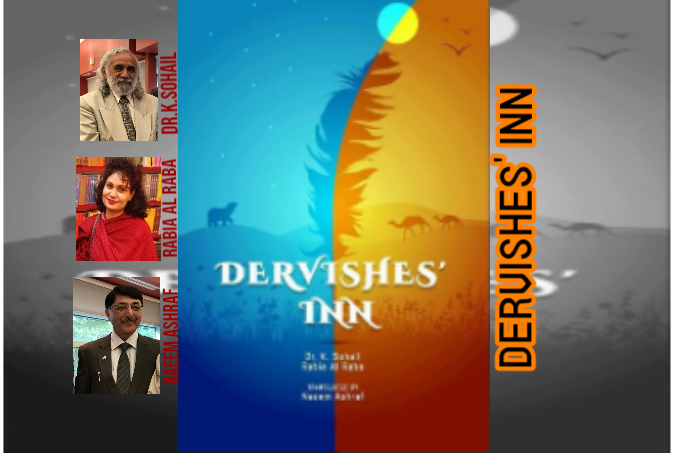Hello, Adaab, Salaam
14th May 2018
Dervish presents to Rabia a friendly Salam!
Since the start of his correspondence with Rabia, Dervish is perpetually pondering over the effectiveness and uniqueness of the ‘Words’. Dervish always says: Hello to Canadian friends, Adaab to Indian friends, then he considers no harm in saying Salaam to Pakistani friends. Rabia always says Salaam to start a letter and ends with Fi-Amaan-Illah. This reminds Dervish an interesting story. He once came across a senior female patient. She was a Canadian and an expert in linguistics who enjoyed command over the origin and history of English words. I asked her: “Why we say Goodbye in English whereas we say; Allah Hafiz e Shuma in Persian, Allah Hafiz in Urdu and Rab Raakha in Punjabi? The old lady replied: In the beginning “Goodbye” too was “God be with you”, it however modified due to excessive use and secular tradition.
Dervish has observed that his secular, atheist friends sometimes say Khuda Hafiz while parting. In this regard, I am reminded of a verse:
Samajh na lena kay mujh ko bohat aqeedat hai
Woh aditan tha jo naam e Khuda lya meinay
Never think that I am a faithful
My reference to God was a ritual
Dervish is astonished to read Rabia’s letters. In such a young age, how Rabia’s personality did acquire such depth and wisdom. It is perhaps a reward of her meditation, reflecting about the mysteries of life during secluded, lonely and sleepless nights, following the tradition of her ideal, Rabia Basri. She has acquired the mastery of staying awake during nights. In return, life has awarded her the insight to see through the darkness. This is a sign of wisdom. Dervish had once said: “Wisdom is the inner light that helps people see in the dark.”
It gives Dervish immense pleasure to know that Rabia trusts him. The faith in other person is, in fact, a foundation stone of true friendship. While reading Rabia’s letters, Dervish often ponders: “He meets numerous people in his life but knows only a few and feels intimacy with none. They stay strangers to Dervish. On the contrary, dervish has never met Rabia, yet feels so intimated that he smells a fragrance of friendship as if he knows her since ages”. Dervish wishes to ask Rabia: “What is the secret behind such intimacy?”
Dervish agrees with Rabia’s idea; when you idealize a person, you unknowingly adopt certain attributes of your ideal. It reminds him of a professor of Toronto University who once told Dervish: “When the students carry out a research on poets, writers or scholars, they need to go through their biographies and works. While doing so, they unconsciously acquire the personality traits of the intellectuals. It is a strange phenomenon that they invisibly also adopt their philosophy and way of life.”
Dervish is curious to know about the creative life of Rabia. When he reads her short stories, he feels that Rabia flies on the wings of her conscious and subconscious simultaneously. Dervish also longs to know when it revealed to Rabia that an artist, and a writer rest inside her. What was the reaction of her friends, relatives, writers and critics when Rabia’s embarked upon her literary journey?
When Dervish is free from his job, he sometimes visits Dervish’s Inn where he meets other Dervishes. On other occasions Dervish organizes seminars to meet and greet poets, artists and scholars visiting from other cities and countries. Dervish surmises that creative minority that follows the voice of heart needs constant support and cooperation from the like-minded people. Lest under the social pressure of traditional majority they lose their wits like famous poet Mir Taqi Mir or commit suicide like Sylvia Plath, Earnest Hemingway and Vincent Van Gogh. Very few people are aware of the sacrifices and hardships of creative minority. The realm of creativity is a double-blade sword. In the words of Arif Abdul Mateen:
Meri azmat ka nishan , meri tabahi ki daleel
Mein ne halaat kay saanchu mein na dhala khud ko
Reasons of my glory or defeat might be same
I never tried to fit into the circumstantial frame
Dervish is looking out of his window. A wonderful weather is inviting him to have a long stroll. During the long walks the fresh thoughts quietly make way into Dervish’s mind.
Therefore, Dervish requests a break from Rabia.




